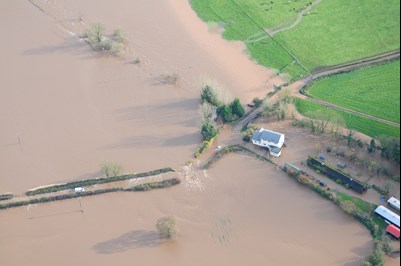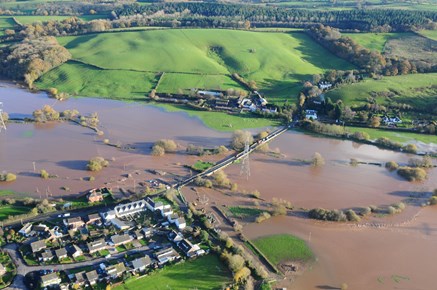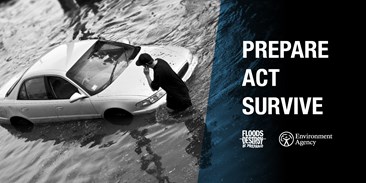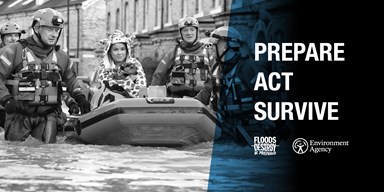Flooding advice
Additional information
The Environment Agency also offers practical advice for coping with floods, and minimising the damage that flood water can cause. Such as
- Am I at risk of flooding
- Flood Preparation for Businesses
- Flooding a guide for Older People
- Flood warnings in force
- Prepare for flooding
- Online flood library

The Environment Agency's three steps to take to prepare for flooding:
- Visit the Environment Agency website or call our 24 hour Floodline on 0845 988 1188 to find out if you are at risk of flooding
- Find out if flood warnings are available in your area
- Make sure you understand the flood warning codes so you know what to do when a flood warning is issued
If floods are imminent, people must:
- Co-operate with emergency services and local authorities - you may be evacuated;
- Turn off gas, electricity and water supplies at the mains. Find out where these are well in advance of any flood;
- Put plugs into sinks and weigh them down with something heavy;
- Move sentimental items like photographs upstairs and think about storing them more safely in future in case you forget or don't have time to move them during a flood;
- Move as many possessions upstairs as you can.

Flood Action Campaign
The Environment Agency runs an annual campaign to encourage people to find out if they are at risk of flooding, and to know what to do to protect themselves and their property in a flood.
Some key facts:
- People aged 18-34 are the least likely to know if the area where they live is at risk of flooding.
- They are least likely to know how to protect their property, or where to go for information.
- They are most likely to take life endangering risks during flooding – and most at risk of dying during a flood.
- The mental health impacts of flooding can last for two years or more after flooding has happened. Depression, anxiety and PTSD can affect up to a third of people who have been flooded.
- BUT – taking steps to prepare for flooding, and knowing what to do in a flood can significantly reduce the damages to your home and possessions, and reduce the likelihood of suffering from these mental health impacts in the future.

How to get involved?
#JustOneThing
Flooding can ruin all your stuff.
Flood water is contaminated with sewage, chemicals and other toxic substances – so if your things have been touched by flood water, they have to be thrown away.
Seeing all your things chucked in a skip is devastating and traumatic. According to research, people who have been flooded can still be suffering from the mental health impacts - such as depression, anxiety and PTSD - two years after the event.
To encourage people aged 18-34 to take steps to prepare for flooding, the Environment Agency are asking people to record a video and share it on their social media channels tagging @EnvAgency in them, telling them #justonething that you would save in a flood. A childhood toy? A favourite lipstick? A VR headset? Designer shoes? What would you save and why?

For more information visit the Environment Agency's website on what to do in a flood?
Content uploaded:
|
Content correct on page at last modification date.
The Local Resilence Forum is NOT accountable for the content of external websites